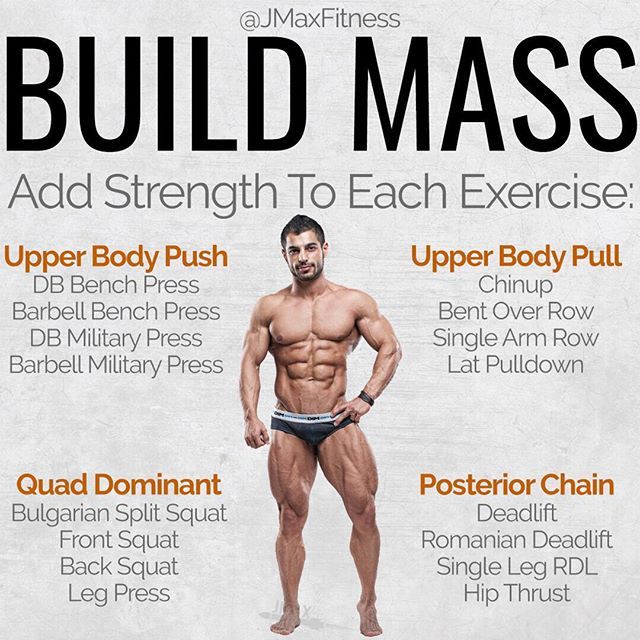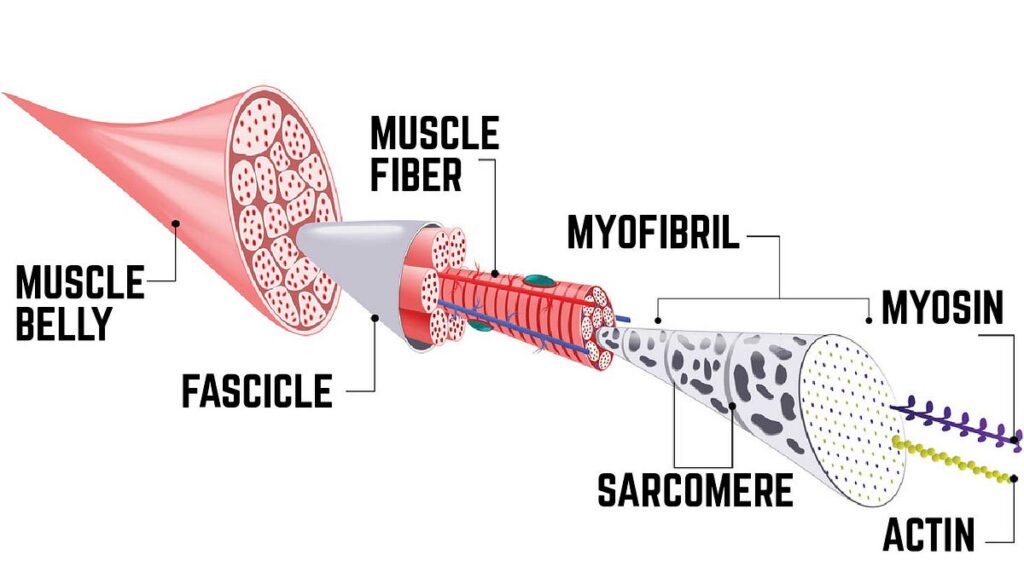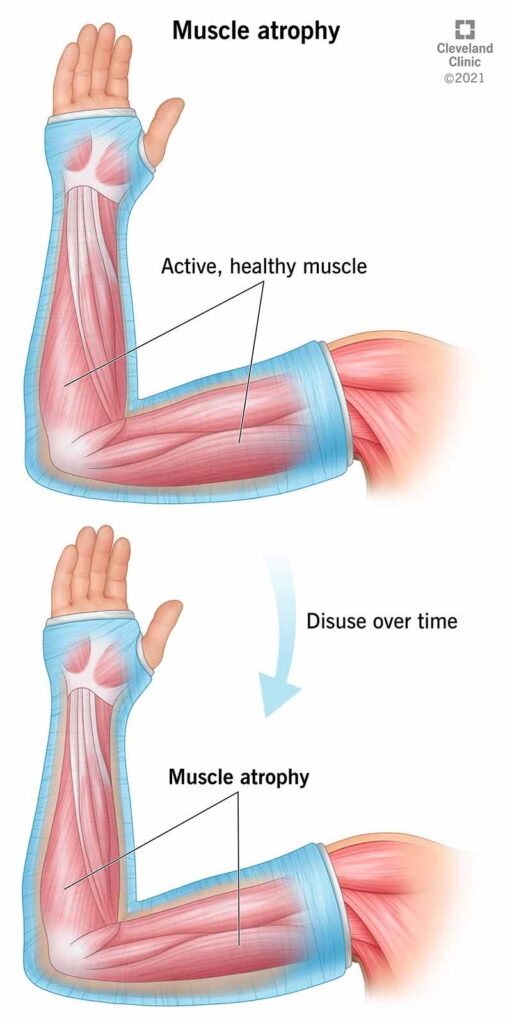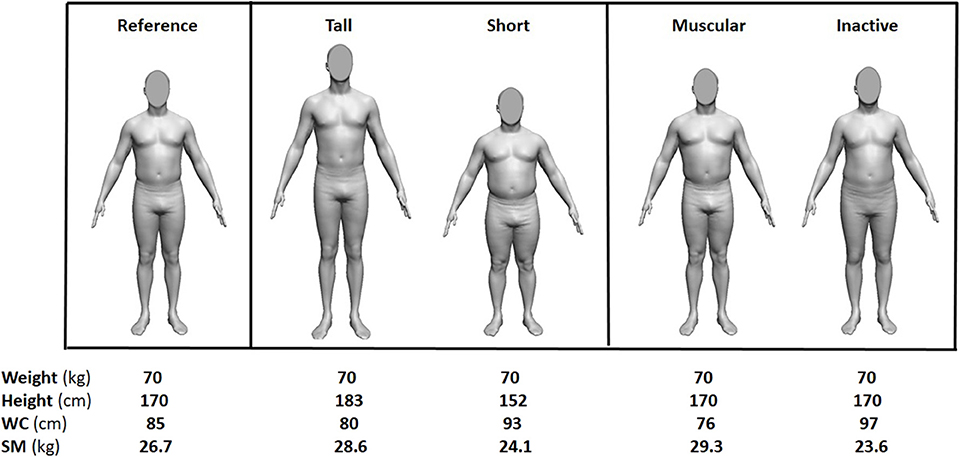The best way to muscle growth is through consistent strength training and a protein-rich diet. Rest and recovery are crucial.
Building muscle requires a strategic approach that combines resistance training, proper nutrition, and adequate rest. Strength training exercises, like weightlifting, stimulate muscle fibers, leading to growth and strength gains. A diet high in protein supports muscle repair and growth. Consuming lean meats, dairy, and plant-based proteins provides essential amino acids.
Rest days are equally important, allowing muscles to recover and grow. Hydration and sleep also play vital roles in muscle development. Tracking progress and adjusting workouts and diet ensure continuous improvement. This holistic approach maximizes muscle growth, leading to optimal fitness results.

Credit: athleanx.com
Effective Training Techniques
Progressive overload means lifting heavier weights over time. It makes your muscles grow bigger and stronger. Start with a weight you can lift comfortably. Gradually increase the weight every week. This method helps your muscles to adapt and grow. Ensure you maintain proper form while lifting. This prevents injuries and maximizes growth.
Compound movements use multiple muscle groups. Examples include squats, deadlifts, and bench presses. These exercises build more muscle compared to isolated movements. They also save time by working several muscles at once. Make sure to lift with proper technique. This ensures effective workouts and reduces injury risk. Compound movements are key to overall muscle growth.
Optimal Nutrition For Muscle Growth
Proteins, carbs, and fats are key for muscle growth. Each macronutrient has a role. Proteins repair and build muscles. Carbs provide energy for workouts. Fats support hormone production. A balanced diet with the right amounts of each is important. Aim for 1.6 to 2.2 grams of protein per kilogram of body weight. Carbs should make up 45-65% of daily calories. Healthy fats should be 20-35% of total calories.
Eating at the right times boosts muscle growth. Have a protein-rich meal or snack every 3-4 hours. This keeps your body in a muscle-building state. Post-workout meals are crucial. They help repair and grow muscles. Eat a mix of protein and carbs within 30 minutes after working out. This helps replenish energy and start muscle recovery.
Importance Of Rest And Recovery
Sleep is very important for muscle growth. Muscles repair during sleep. Getting 7-9 hours of sleep helps muscles recover. Good sleep quality helps your body stay strong. Poor sleep can slow down muscle growth.
A quiet room helps you sleep better. Avoid screens before bed to improve sleep quality. Dark rooms also help with better sleep. Quality sleep boosts your energy for workouts.
Active recovery means light exercise to help muscles heal. It helps blood flow to your muscles. Walking or stretching are good examples. Active recovery reduces muscle soreness. It also speeds up muscle repair.
Active recovery can be done on rest days. It helps keep your body moving. This is better than complete rest. Light activities like yoga or swimming work well. Keep it gentle to avoid overworking muscles.

Credit: www.youtube.com
Role Of Supplements
Protein powders help build muscles. They provide essential amino acids. These acids are the building blocks of muscles. Whey protein is a popular choice. It is quickly absorbed by the body. Casein protein digests slower but is also effective. Both types can be used for muscle growth. Mix protein powders with water or milk. Drink them after workouts for best results.
Creatine boosts muscle strength. It is found naturally in muscle cells. Creatine supplements can enhance muscle mass. They help produce more energy during exercise. This allows for more intense workouts. Creatine monohydrate is the most studied form. It is safe and effective. Taking creatine before workouts can improve performance. Drink plenty of water while taking creatine.
Consistency And Patience
Building muscle takes time. Stay consistent in your workouts. Patience is key to success. Results will not come overnight. Stick to your plan and stay motivated.
Building A Routine
Have a regular workout schedule. Exercise at least three times a week. Mix different exercises for better results. Focus on both strength and endurance. Rest is also essential for muscle growth.
Tracking Progress
Keep a workout journal. Write down your exercises and weights. Track your progress each week. Notice small improvements and stay motivated. Celebrate your achievements, big or small.
:max_bytes(150000):strip_icc()/are-you-eating-for-muscle-3121316-FINAL-95cb996f8986480386447c1a61efb4ee.png)
Credit: www.verywellfit.com
Avoiding Common Mistakes
Muscles need time to rest and recover. Training too often can lead to injuries. This can slow down your progress. Rest days are as important as workout days. Listen to your body. If you feel very tired, take a break. Overtraining can cause burnout. It can make you lose interest in working out. Balance your workouts with proper rest.
Proper form is key to effective workouts. Bad form can lead to injuries. Always start with lighter weights to learn the right technique. Use a mirror or ask a friend to check your form. Focus on quality over quantity. Good form ensures you target the right muscles. It helps you get the most out of your workouts. Never rush through exercises. Take your time to do them correctly.
Mental Approach
Clear goals help in muscle growth. Decide what you want to achieve. Write down your goals. Make sure they are realistic and specific. This way, you can track your progress. Celebrate small wins along the way. It boosts confidence and keeps you on track. Adjust your goals as you improve. Never forget to dream big.
Staying motivated is key to muscle growth. Find a workout buddy. It makes exercise fun and keeps you accountable. Listen to your favorite music during workouts. Create a playlist that pumps you up. Visualize your success and imagine how strong you will become.
Track your progress. Use a journal or an app. This helps you see improvements over time. Reward yourself for reaching milestones. This keeps you excited about your journey. Stay positive and never give up.
Monitoring Progress
Track your strength gains by recording the weight lifted and the number of reps. Use a workout journal or an app. Compare your performance each week. Look for consistent improvements. Aim to lift more weight or do more reps over time. Small gains add up to big results.
Check your body composition with a body fat scale or calipers. This helps you see changes in muscle mass and fat levels. Visit a gym for a professional analysis. Regular checks keep you informed. Track changes every few weeks. Adjust your routine if needed to keep progressing.
Frequently Asked Questions
What Is The Best Way To Build Muscle?
The best way to build muscle is through strength training. Combine it with a balanced diet rich in protein. Consistency and progressive overload are key.
How Often Should I Workout For Muscle Growth?
For optimal muscle growth, workout 3-4 times a week. Allow rest days for recovery. Rest is crucial for muscle repair.
What Foods Help With Muscle Growth?
Protein-rich foods like chicken, fish, and legumes help with muscle growth. Include healthy fats and complex carbohydrates for energy.
Do I Need Supplements For Muscle Growth?
Supplements like whey protein can aid muscle growth. However, they are not necessary if you have a balanced diet.
Conclusion
Achieving muscle growth requires consistency, proper nutrition, and effective workouts. Focus on compound exercises for best results. Ensure adequate rest and recovery to prevent injuries. Stay hydrated and maintain a balanced diet rich in protein. With dedication and the right approach, muscle growth will follow.
Stay committed, and you’ll see progress.











